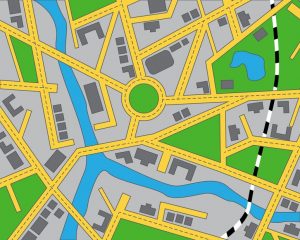 Most community associations in Georgia are nonprofit corporations subject to the Georgia Nonprofit Corporation Code (the “Nonprofit Code”). Under the Nonprofit Code, O.C.G.A. § 14-3-302:
Most community associations in Georgia are nonprofit corporations subject to the Georgia Nonprofit Corporation Code (the “Nonprofit Code”). Under the Nonprofit Code, O.C.G.A. § 14-3-302:
Unless its articles of incorporation provide otherwise, every corporation has the same powers as an individual to do all things necessary or convenient to carry out its business and affairs, including without limitation power:…(4) To purchase, receive, lease, or otherwise acquire, own, hold, improve, use, and otherwise deal with real or personal property or any legal or equitable interest in property, wherever located.
Coupled with an association’s governing documents, the foregoing statute essentially authorizes a community association to buy and sell real property. In most cases, this is usually in the context of adding to or selling off a portion of the association’s common area(s). The process for accomplishing a purchase or sale can differ from association to association, and there may be other applicable laws involved depending on the type of association (i.e. homeowners association vs. condominium association).
Since the Nonprofit Code generally allows community associations to own, buy and sell real property, the first step in beginning the process for your community association is to review its governing documents. The most common place for guidance is the declaration. There is typically a provision on association property (or the common elements for a condominium) that describes the procedure for acquiring and/or disposing the association’s interest in the same. The board of directors for the association will handle these types of transactions, but it is important to check if your community requires a vote from the membership before the board can act. Holding a vote is a very common requirement, but even if your governing documents are silent on the issue, getting membership feedback is still a good idea for such a large financial decision.
In addition to the decision itself, the association also has to determine the legal impact on its governing documents. For example, after purchasing real property, is the association going to annex the additional land into the association’s defined common areas? Or will the real property be incorporated into the condominium’s common elements? And what about changes to the plats? The tax implications? Either way, if the association is going to change the property that is currently defined in its declaration, the purchase/sale will likely require the association to file an amendment to the declaration that discloses the change. Moreover, the association will probably need to file a revised plat in the land records that depicts the change.
Notwithstanding the foregoing, the association can also decide to hold onto land independent from the real property described in its declaration (continuing with purchase example). In this scenario, the property would not be officially subject to the terms and conditions of the declaration, but as the property owner, the association can still self-impose restrictions and allow the property to be used like the existing common areas. Keep in mind, however, condominium associations that hold real property like this will be taxed on the land, which is something they may not be used to since common elements are not separately taxed (condominium taxes are only paid by the individual owners since they have the ownership interest in the common elements).
In sum, buying and selling real property can be a complicated process for a community association. That being said, if the association can properly navigate the process, it can be a great way for the association to expand its common areas and/or generate extra income for future expenses. There will surely be some legal questions along the way, so it is always best to contact your association attorney when they arise.
